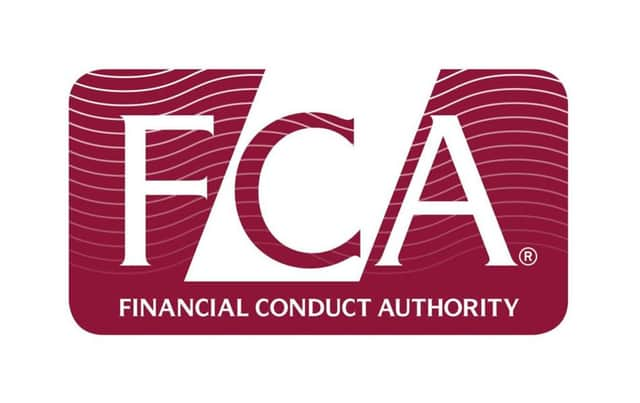Greg Wright: Full disclosure of RBS report is only way FCA can retain credibility


Our elected representatives, the banks or the regulator? The answer, of-course, should be our MPs, but their ineffectual response to the regulator’s failure to publish a full report into alleged misconduct by a bailed-out bank must make us worry about our financial affairs.
The markets watchdog has provoked a storm of protest by rejecting calls to publish a report into claims that Royal Bank of Scotland mistreated some of its small business customers. Nicky Morgan, the chair of the Treasury Select Committee, suffered a humiliating rebuff when she demanded the Financial Conduct Authority publish its leaked report into the RBS’s restructuring unit, so our MPs could decide what action to take.
Advertisement
Hide AdAdvertisement
Hide AdThe BBC reported that the 361-page report showed 92 per cent of “viable” firms seen by the unit experienced “inappropriate action”, such as interest charges being raised or unnecessary fees imposed. It was also reported that only 10 per cent of its business customers ever returned to the main bank. This investigation relates to events of almost a decade ago. It seems incredible that taxpayers, who stepped in to save RBS, have to rely on leaks to discover the report’s contents.
In 2014, the FCA commissioned consultants to look into allegations that RBS’s Global Restructuring Group (GRG) pushed some of its small business customers into bankruptcy in the aftermath of the financial crisis.
FCA chief executive Andrew Bailey said in a letter to the Treasury Select Committee that it was not in the public interest to publish the report in full because such “Section 166” reports were conducted on the basis they would be kept private. A detailed summary is “largely ready” for publication once the FCA has decided whether it should formally investigate RBS or individuals, Mr Bailey said.
Many MPs have been infuriated by this response and are demanding full disclosure. The fact the Government has not ordered the FCA to publish the report in full is a reflection of a deep-rooted failure in our regulatory regime.
Advertisement
Hide AdAdvertisement
Hide AdAs Norman Lamb MP, the vice chairman of the All Party Parliamentary Group on Fair Business Banking and Finance, observed: “The secrecy around this report completely undermines public confidence in the FCA.”
Mr Lamb has written to the Chancellor, Philip Hammond, calling for him to intervene. It’s a letter he shouldn’t have to write. The Chancellor should be pounding his fists on the FCA’s table. It seems hard to understand how the FCA could have embarked on any investigation on the basis that there should be “no intention” of publishing the findings.
The FCA should protect consumers. We also still hold a 70 per cent stake in RBS. How can the FCA retain public support if it fails to provide a detailed report for MPs’ scrutiny about a case that affects us all? The probe into these allegations has dragged on for almost four years. Surely, these highly paid investigators should have delivered their findings by now?
RBS has previously acknowledged that, in the aftermath of the financial crisis, it let some of its SME (small-and-medium-sized enterprise) customers down, including around the transition to GRG, the clarity over its changes to prices or fees and also in relation to the handling of complaints.
Advertisement
Hide AdAdvertisement
Hide AdThe culture, structure and way RBS operates today is fundamentally different from the period under review, according to Ross McEwan, the CEO of RBS.
The FCA’s response to this saga creates the damaging perception that the regulator is primarily concerned with tracking down the people responsible for leaking the report. It seems more concerned with sparing its blushes than placing the findings of a long-awaited investigation into the public domain.
If the regulator falls short, the Government must force it to raise its game, or scrap it altogether.